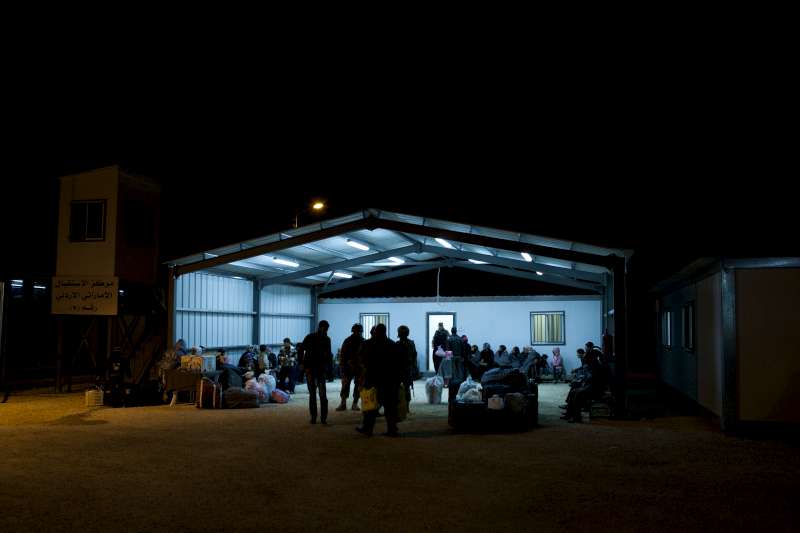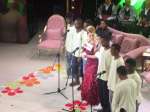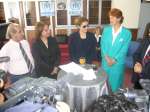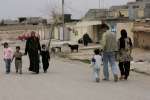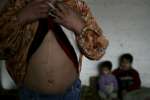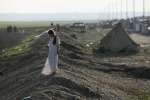Number of Syrian refugees registered in region tops 500,000 mark
News Stories, 11 December 2012
GENEVA, December 11 (UNHCR) – The UN refugee agency announced on Tuesday that more than half-a-million Syrian refugees have been registered or are awaiting registration in the four neighbouring countries and North Africa, and the numbers are climbing by more than 3,000 per day.
Chief spokesperson Melissa Fleming, citing UNHCR's latest figures from Lebanon, Jordan, Iraq, Turkey and North Africa, told journalists in Geneva that "509,559 Syrians are either already registered [425,160] or in the process of being registered [84,399]."
She added that, contrary to public perceptions, only about 40 per cent of registered Syrian refugees regionwide live in refugee camps. "The majority live outside camps, often in rental housing, with host families, or in various types of collective centres and renovated accommodation."
In Lebanon and North Africa, for example, there are no camps. Instead, Syrian refugees live in both urban and rural communities. In Jordan, only 24 per cent live in camps. In Iraq, half are in camps. And in Turkey, 100 per cent are in government-run camps.
There are currently 14 camps in Turkey, three in Iraq and three in Jordan.
As of Monday, the latest figures of registered Syrian refugees or those awaiting registration in each country are: Lebanon, 154,387; Jordan, 142,664; Turkey, 136,319; Iraq, 64,449; and North Africa, 11,740.
Fleming said that in addition to people already registered or awaiting registration, most of the neighbouring countries and North Africa also have large numbers of Syrians who have yet not come forward to seek help.
Jordan estimates, for example, that it has some 100,000 who are not registered. Turkey estimates there are more than 70,000 outside camps, while Egypt is estimating a similar number there. Lebanon also estimates that it has tens of thousands who have not yet registered.
Since the beginning of November, the number of registered refugees regionwide has risen by about 3,200 a day, including both new arrivals from Syria and those who had already been in the asylum countries for some time but had not sought help through registration.
"The numbers of those struggling to live on the local economy and who eventually come forward to register are expected to increase as the conflict in Syria continues, resources are depleted and host communities and families can no longer support them," UNHCR's Fleming said.
In the case of Jordan, close to 1,000 Syrian refugees have crossed during the past two nights.
"Syrian refugees arriving during recent bad weather, reached Jordan with soaked clothing and mud-covered shoes due to heavy rainfall. UNHCR protection teams described the night time arrivals as fearful, freezing and without proper winter clothing," Fleming noted.
UNHCR and partners have welcomed some 2,500 Syrian refugees to the Za'atri camp in the past week with blankets, sleeping mats and a high energy meal, with doctors responding to the medical needs of the newly arrived.
The refugee agency has observed in Jordan an increase in arrivals of older people and children, with 60 per cent of recent arrivals under the age of 18, including 22 new born infants during Sunday night, and also including a number of unaccompanied minors.
As part of efforts to help refugees deal with the winter cold, UNHCR and humanitarian partners are in the process of distributing some 50,000 high thermal blankets at Za'atri. This is in addition to some 62,000 blankets that have already been distributed in Za'atri to date.
On Monday, UNHCR's partner in the winterization efforts, the Norwegian Refugee Council, received the first batch of gas heaters on site, which will be a welcome addition to the new porches being installed as temperatures continue to drop.
UNHCR is stepping up its outreach activities in the region to provide registration and help to those who need it. "This is not easy, given the wide dispersal of the Syrian refugees in some areas. In Lebanon, for example, they are spread across some 500 municipalities, some of them quite remote," Fleming said.




